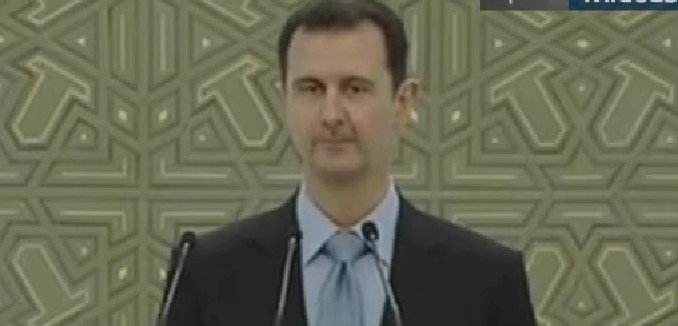The United Nations’ special envoy to Syria has estimated that Iran is spending billions to prop up the regime of Syrian President Bashar al-Assad, Eli Lake reported today for Bloomberg View.
On Monday, a spokeswoman for the U.N. special envoy for Syria, Staffan de Mistura, told me that the envoy estimates Iran spends $6 billion annually on Assad’s government. Other experts I spoke to put the number even higher. Nadim Shehadi, the director of the Fares Center for Eastern Mediterranean Studies at Tufts University, said his research shows that Iran spent between $14 and $15 billion in military and economic aid to the Damascus regime in 2012 and 2013, even though Iran’s banks and businesses were cut off from the international financial system.
Such figures undermine recent claims from Obama and his top officials suggesting that Iran spends a relative pittance to challenge U.S. interests and allies in the region. While the administration has never disclosed its own estimates on how much Iran spends to back Syria and other allies in the Middle East, Obama himself has played down the financial dimension of the regime’s support.
While hard figures are difficult to come by, other estimates that combine direct and indirect aid—including support for Hezbollah—reach the range of $15-20 billion annually. Iran’s largesse, even as it suffers from international sanctions, raises the question as to what will happen if sanctions are lifted as a result of a nuclear deal.
Many members of Congress and close U.S. regional allies have raised concerns that Iran will see a windfall of cash as a condition of any nuclear deal it signs this summer. Obama himself has said there is at least $150 billion worth of Iranian money being held in overseas banks as part of the crippling sanctions. If Iran spends billions of its limited resources today to support its proxies in the Middle East, it would follow that it will spend even more once sanctions are lifted.
A Pentagon report released last week stated that Iran’s goal is to “establish [itself] as the dominant regional power,” as a Pentagon report released last week stated. The fear that a deal, and the ensuing lifting of sanctions, will help Iran in this regard has been repeatedly expressed by many experts and observers in recent months, including Foreign Policy editor David Rothkopf, former secretaries of state Henry Kissinger and George Shultz, former State Department official Aaron David Miller, and Washington Institute for Near East Policy fellows Mehdi Khalaji, Soner Cagaptay, and James Jeffrey.
[Photo: Monitor Mideast / YouTube ]




